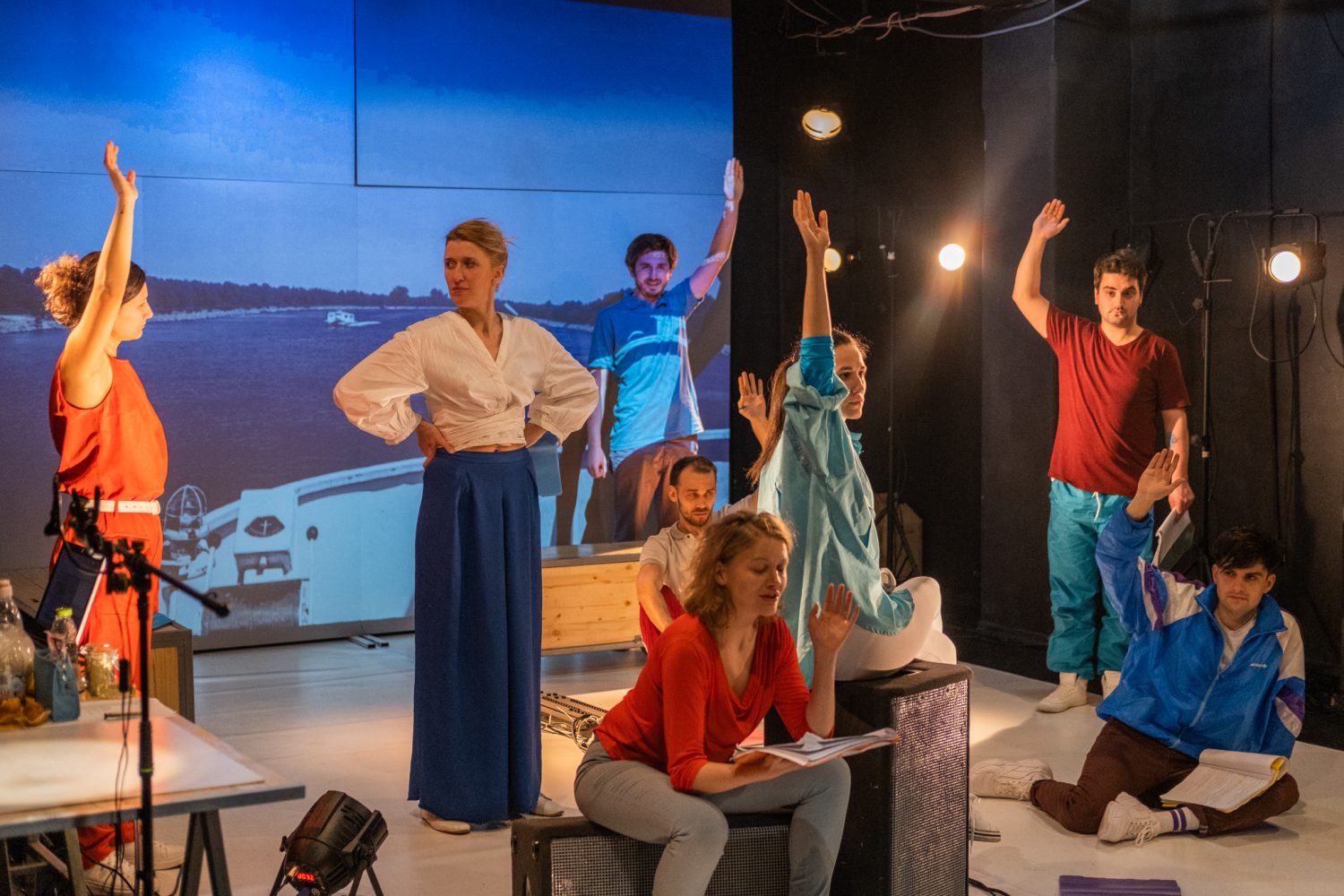Local to global: reflections on building a common language through theatre
Reactor – a space for creative experiments is an independent theatre venue and an artistic collective active in Cluj-Napoca from 2014, producing over 50 original theatre pieces, all focused on the nearby reality and reflecting on social contexts and issues in an attempt to create space for change and `a step forward`.

Credit: Doru Vatavului

Credit: Bogdan Botaș
The artistic collective is composed of a small nuclear team, as well as of a larger number of collaborating artists, most of them from Romania, who bring new approaches or new angles to the work processes. Being strongly connected to its local contexts, the venue has also built over time a community of audience members, who become in many cases partners of dialogue.
It sometimes seems that, during these frames of meeting and interacting, both artists and audience members build together a common language, a common point of view that integrates all the specificities of a middle-sized-city on an upward slope of development. There are moments where we appear to share a common understanding of the frames around us, and in those moments, the idea of community becomes more than an abstract concept written in project applications.
During the last few years, Reactor has tried to open up to international perspectives and frames, in search of collaborations and opportunities that could help the team and the venue grow, but also motivated by the curiosity to see how and if their work is relevant to other contexts.
Each international interaction poses a challenge to find new common language with partners in dialogue, not only in terms of vocabulary, but also regarding common references, understanding of concepts, specificities, generalities; understanding of certain processes and identifying the current phases of those processes. Are we at the same place? Is there a gap between us? Can we both understand the content of the gap? What gets lost in this conversation? How do we work with what we don`t understand about each other?
After so many years of producing work from a local perspective, it is interesting to observe what changes for a collective such as ours when it focuses on producing internationally. Do we work with the same tools or do we need to change some of them? Do we address the local audience in a new manner? Is there a leap in the dialogue or does the conversation with the local audience follow its organic course? Is there a change in the common language? Do we address a new `international` audience? Who is this generic international audience and what are the things that we share? Is a generic dialogue a real dialogue? Who do we want to reach?
We realised after a short time of internationally focused work that we need to rethink some of our tools, while making sure that we keep our local audience connected. We need to think about the “international” audience as specifically as we can, by giving more time to understand the new contexts and to find new references in this dialogue with them.
This rethinking and self-interrogation takes us back to the initial motivation for international work and stirs up things until we find the right answer. It is a self-reflexive process, after all.
As much as we can anticipate some interactions, there are always things that come as a surprise or as a ‘blur’, an uncertainty that we take in.
Each time we present work internationally, we are surprised by what reaches out and what doesn’t, sometimes coming up against some big differences between what we receive from home and the feedback we get in foreign contexts. The relationship with the language itself is always a challenge, as we are using a foreign language which we all control on different levels. Sometimes, in these translations, we lose the specifics that come with the original words. Or we are limited by the knowledge of that language. In conversations, we might find ourselves projecting an understanding of words or contexts that we don’t fully understand, or we might be misunderstood.
Either way, there is a gap. In this gap, perhaps we should leave an empty space for the things that we cannot reach, for the things that are lost in translation. A non-projection that adds no judgement or meaning, that just admits the gap as something that will occur in between people, cultures, conversations. Outside this gap, we find support in what we recognize as a common language, even if it might take more time and more patience to get to the same meaning of the words.
Reactor – a space for creative experiments is an independent theatre collective active in Cluj-Napoca from 2014. Find out more at reactor-cluj.com.